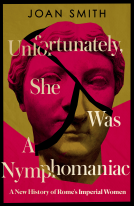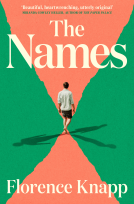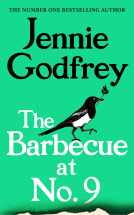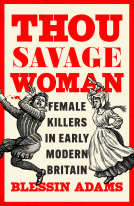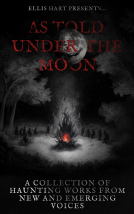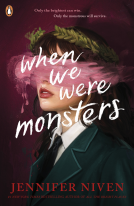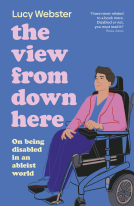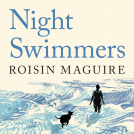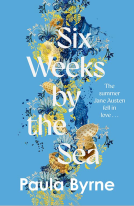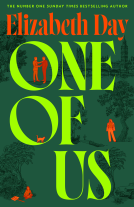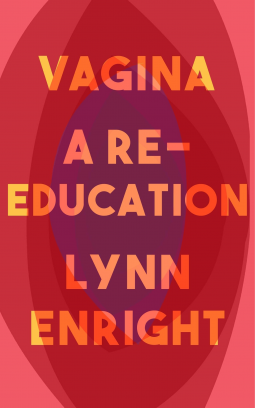
Vagina
A Re-Education
by Lynn Enright
This title was previously available on NetGalley and is now archived.
Send NetGalley books directly to your Kindle or Kindle app
1
To read on a Kindle or Kindle app, please add kindle@netgalley.com as an approved email address to receive files in your Amazon account. Click here for step-by-step instructions.
2
Also find your Kindle email address within your Amazon account, and enter it here.
Pub Date 7 Mar 2019 | Archive Date 25 Jan 2019
Atlantic Books | Allen & Unwin
Talking about this book? Use #Vagina #NetGalley. More hashtag tips!
Description
Part memoir, part practical guide to the vagina, this indispensable book sifts through myths and misinformation with the aim of empowering women with vital knowledge about their own bodies.
From earliest childhood, girls are misled about their own bodies, encouraged to describe themselves with cute and silly names rather than anatomically correct terms. In our schools and in our culture, we are coy about women while putting straight men's sexuality front and centre. Girls grow up feeling ashamed about their periods, about the appearance of their vulvas, about their own desires. They grow up without a full and honest sex education, and this lack of knowledge has serious consequences: the number of women attending cervical screening appointments in the UK is at a 20-year low while labiaplasty is the fastest growing type of plastic surgery in the world.
Vagina provides girls and women with information they need about their own bodies - about the vagina, the hymen, the clitoris, the orgasm; about conditions like endometriosis and vulvodynia. It confronts taboos, such as abortion, miscarriage, infertility and masturbation. It tackles vital social issues like period poverty, female genital mutilation and the rights of transgender women. It is honest and moving as Lynn Enright shares her personal stories but this is about more than one woman - this is a book that will provoke thousands of conversations. We urgently need to talk about women's sexual and reproductive health, about our experiences of sex and pregnancy and pain and pleasure. Vagina: A Re-Education will help us do that.
**PLEASE NOTE This is an uncorrected proof file, so there may be errors within the text**
Available Editions
| EDITION | Paperback |
| ISBN | 9781911630012 |
| PRICE | £14.99 (GBP) |
Average rating from 12 members
Featured Reviews
 Beatrix B, Reviewer
Beatrix B, Reviewer
I loved every page of the book. I think there are so many information out there about our own body what a woman need to know. This book is amazing and reasuring women about think positively about their body.
I love how this book give empowerment to woman to talk about their body and do not feel ashame to call it on name, check and talk about their vulva, vagina or any other part.
 Emily G, Reviewer
Emily G, Reviewer
In this book Lynn Enright explores the marginalisation and misunderstandings around the vagina and vulva in common knowledge, science, and medicine. Enright investigates the biology of the vulva and deconstructs binary concepts of sex, gender, and genitalia, presenting thorough and well-researched information through a combination of statistical analysis and personal testimonies. Enright approaches feminist concepts with a clear voice and argues that an intersectional understanding of feminism and an emphasis on education around the vulva and vagina in feminist politics are not opposing ideas.
'There is sometimes a sense that to be a feminist who cares about vaginas is to be a person who does not care about trans rights. I reject this notion completely. To put it plainly, I think the suggestion that a woman can’t care about vaginas and trans rights is deeply misogynistic.
[...]
I do not believe that there has to be a battle between those who care about vaginas and those who care about trans rights. I think it is possible to care about both.'
I personally found much of the information on the menopause fascinating, as there is little general information about it and many women are reticent to share their experiences. The statistics about the representation of middle-aged men and women in film and television was shocking, and shows how the stories and knowledge of older women are silenced and censored through popular culture.
'Aged 42– 65, men had 55 million words: this was when they were most powerful, when they delivered impassioned monologues or portrayed sparring lawyers or wooed much younger women with long-winded jokes. Aged 42– 65, women had 11 million words. They were being disappeared.'
One thing I found disappointing was the lack of information about Lichen Sclerosus. Enright described a multitude of medical conditions and symptoms, particularly those that affect perimenopausal, menopausal, and post-menopausal women, and yet didnt make a single mention of Lichen Sclerosus at all. Some conditions she mentions: Genitourinary Syndrome of Menopause (GSM), cystitis, UTIs, vulvodynia, vaginal dryness, etc. She also goes into detail about hormone changes during the menopausal stages. LS is a serious and incurable condition found in all ages, but according to current statistics mostly in post-menopausal women (although in my opinion that's a result of lack of awareness and data). It causes scarring, atrophy, difficulty with sex, itching, and increased risk of cancer. Perhaps Enright didn't include LS because of the historic lack of scientific research and persistent misdiagnoses and lack of knowledge of the condition amongst doctors, but that ignorance is exactly the problem that this book is trying to interrogate.
Ultimately I enjoyed Enright's authenticity and straightforward voice, and would absolutely recommend this book to anyone with a vulva. This book is focussed specifically on the vagina and vulva and menopause and representation, although with thorough awareness of the complexities of gender and sex in the conversations, and while for the majority of the text she uses cisnormative language, this awareness that binary language and thinking is outdated, is sorely lacking in most texts on this subject.
Thanks to Netgalley and Atlantic Books for an advance copy in exchange for an unbiased review.
